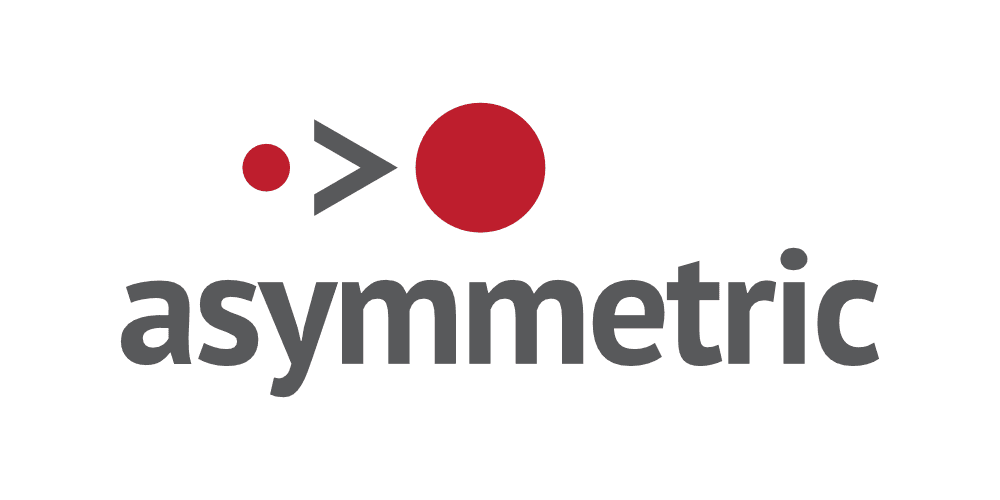Looking to boost your e-commerce sales with e-commerce paid search? This guide covers everything from setting up your campaigns to optimizing performance and tracking results.
Key Takeaways
- E-commerce paid search operates on a pay-per-click model, enhancing brand visibility and allowing quicker access to potential customers than organic search methods.
- Key components for a successful campaign include effective keyword research, engaging ad copy, and optimized landing pages, all of which are aligned with clear business objectives.
- Advanced techniques like retargeting, implementing negative keywords, and leveraging ad extensions can significantly improve ad performance and overall campaign effectiveness.
Understanding Ecommerce Paid Search

Ecommerce paid search is a digital advertising method in which marketers pay for clicks on an auction-based model. This approach, called pay-per-click (PPC), charges advertisers based on user interaction. Specifically, they incur a fee when a user clicks on their advertisement. These ads typically appear at the top or bottom of search engine results pages (SERPs), ensuring immediate visibility.
Factors such as the bid amount, ad relevance, and ad quality score influence the effectiveness of a paid search ad. One significant advantage of e-commerce paid search is that it enhances brand awareness, even when ads are not clicked, making it a powerful tool for capturing market share.
While organic and paid search strategies aim to get products in front of a large audience, paid search offers faster visibility in search results, especially for ecommerce marketers. More brands are increasingly leveraging paid search as a competitive tactic to capture market share. This approach allows businesses to stay ahead in the competitive e-commerce landscape by ensuring their products are visible to potential customers at the right moment.
Key Components of a Successful Paid Search Campaign

Creating a successful paid search campaign requires attention to several key components. Effective keyword research is critical for targeting the right audience, as poor keyword selection can lead to wasted resources on irrelevant clicks. Crafting persuasive ad copy encouraging users to click is equally crucial, typically involving clear value propositions and engaging language.
Finally, optimizing landing pages is essential for converting the traffic you drive to your site, ensuring they are aligned with your ad copy and offer a seamless user experience. Defining clear objectives and tracking conversions are vital aspects that align campaign elements with overall business goals, ensuring success.
Let’s break down these components further to understand how they contribute to an effective paid search campaign.
Keyword Research
Selecting the right keywords is the bedrock of any successful paid search campaign. The success of a PPC campaign hinges on identifying relevant keywords aligned with the business and its offerings. Tools like Google Keyword Planner can be invaluable, helping you understand search volume, competition, and average cost per click for your targeted keywords.
There are three main types of negative keywords: broad match, phrase match, and exact match. Each affects ad visibility differently. Incorporating negative keywords into your campaigns is essential for refining ad targeting and reducing wasted ad spend by excluding irrelevant search terms.
Breaking down ad groups in keyword research helps identify performing and underperforming keywords, allowing for better campaign optimization. Grouping relevant keywords ensures that your ads are shown to a more targeted audience, increasing the chances of conversion.
Crafting Effective Ad Copy
A compelling offer is crucial for attracting prospects in paid search advertising. Ad copy should be closely related to the offer to engage potential customers effectively. This involves using engaging language and clear value propositions that resonate with your target audience.
A/B testing different ad elements is a powerful method for refining your ad copy. You can determine which variations are most effective at engaging your audience and driving clicks by testing various headlines, descriptions, and calls to action.
Optimizing Landing Pages
The design and content of landing pages are essential for converting website visitors into customers. Ensuring that landing pages are aligned with your ad copy creates a seamless user experience that encourages conversions. This involves having clear calls to action, relevant content, and an overall design that matches the expectations set by your ads.
Neglecting mobile optimization can lead to high bounce rates and lost sales opportunities. As more users browse and shop on mobile devices, ensuring your mobile-friendly landing pages is crucial to effectively capturing and converting this traffic.
Setting Up Your Paid Search Campaign

Setting up a paid search campaign involves several strategic steps. Optimizing feeds in paid search campaigns is crucial for an effective advertising strategy. This ensures that your ads remain active and reliable for users, providing a consistent traffic flow to your site.
Choosing the right platform and budgeting strategies are critical elements in this process. Let’s explore these aspects in more detail.
Choosing the Right Platform
Google Ads and Bing Ads are the primary platforms for launching paid search campaigns. While Google Ads is the most popular choice due to its extensive reach, Bing Ads can be a cost-effective alternative with generally lower advertising costs.
Bing Ads also enables easier ad creation by importing campaigns directly from Google Ads. Diversifying your ad spend across multiple platforms can enhance your reach and effectiveness, ensuring you capture a broader audience.
Budgeting and Bidding Strategies
Establishing daily or monthly budgets allows for better management of ad spend relative to overall marketing goals. When the budget for a paid search campaign is exhausted, ads may stop appearing in search results, making budget management critical to maintaining consistent ad visibility.
Advertisers can choose between manual and automated bidding strategies to optimize campaign performance based on specific goals. Higher bids increase the likelihood of ad display for relevant searches. However, targeting a lower ad position may be beneficial, as not bidding aggressively could lower cost-per-clicks (CPCs).
Less-established businesses may control their paid search expenses by implementing brief campaigns. They might also choose to bid for less competitive search results. Factors that influence ad placement in e-commerce search advertising include maximum bid and quality score.
Enhancing Ad Performance with Quality Score
Quality Score is a diagnostic tool that measures the relevance of ads, keywords, and landing pages to user searches. It is rated on a scale from 1 to 10, with higher scores indicating better alignment with user intent. The main components affecting Quality Score include expected click-through rate (CTR), ad relevance, and landing page experience.
Improving Quality Score can reduce costs per click (CPC) and improve ad visibility. A higher Quality Score may also indirectly enhance ad placement by making ads more relevant to user searches.
Monitoring your Quality Score can lower click costs and improve ad positions. Regularly reviewing and optimizing your Quality Score is essential for maintaining effective paid search campaigns.
Advanced Techniques for Ecommerce Paid Search

Advanced techniques in e-commerce paid search can significantly enhance campaign performance. Retargeting strategies, for instance, can re-engage previous visitors and boost conversion rates by reminding them of products they viewed but did not purchase. Implementing negative keywords allows advertisers to refine their ad targeting, reducing wasted ad spend by excluding irrelevant search terms.
Leveraging ad extensions enhances ad visibility by providing additional information like location, phone numbers, and site links, leading to increased click-through rates. Let’s explore these techniques in more detail.
Utilizing Retargeting
Retargeting ad campaigns specifically target users who interacted with ads or websites but did not convert. The purpose of retargeting is to re-engage previous visitors and increase conversions. More than 15% of customers can be won back through retargeting.
Visitors are 70% more likely to convert if they see retargeting messages. Focusing exclusively on attracting new customers without retargeting existing warm leads can reduce conversion rates. Advanced strategies in paid search include retargeting to improve campaign effectiveness.
Implementing Negative Keywords
Negative keywords are terms that prevent ads from showing for irrelevant searches. Incorporating negative keywords into your campaigns leads to a more targeted audience. Negative keywords reduce unnecessary advertising costs by avoiding unqualified clicks.
Implementing negative keywords is essential for optimizing ad spend and improving campaign effectiveness.
Leveraging Ad Extensions
Ad extensions enhance ads by providing additional information, making them more appealing to potential customers. This can significantly boost ad visibility and improve click-through rates.
Various ad extensions, like structured snippets and callouts, can significantly boost an ad’s click-through rate. Ad extensions can include multiple types, such as customer reviews, callouts, structured snippets, and location information.
Monitoring and Analyzing Paid Search Campaigns
Measuring the effectiveness of paid search campaigns is essential for optimizing performance and understanding return on investment. Regular monitoring helps identify issues early, prevent budget waste, and improve conversion rates. Continuous oversight allows businesses to enhance their return on investment by understanding which elements yield the best results and facilitating effective budget allocation.
Awareness of market changes and competitors’ strategies can refine your paid search tactics. Using advanced strategies in ecommerce paid search can significantly improve campaign performance and return on investment.
Key Metrics to Track
Key paid search metrics to track include click-through rate (CTR), conversion rate, and return on ad spend (ROAS). Conversion tracking involves adding a code snippet to the confirmation page to collect purchase data, which is crucial for understanding which ads drive sales.
If specific keywords are receiving clicks but not leading to conversions, adjusting the advertisement copy or removing the keywords altogether is recommended. Failing to monitor ad performance regularly can lead to overspending without achieving desired results, making frequent reviews essential.
Tools for Analysis
Paid search advertising provides flexible budgeting and bidding options, allowing marketers to adjust their strategies based on performance and goals. The competition for popular keywords can significantly increase the cost-per-click (CPC), impacting overall budgets for paid search campaigns.
Analyzing paid search performance is crucial for optimizing budgets and improving overall campaign effectiveness.
Integrating Paid Search with Overall Marketing Strategy

Incorporating paid search into a digital marketing strategy enhances online visibility and drives traffic, which is vital for business growth. Utilizing insights from paid search campaigns can help shape broader marketing strategies, enabling more tailored and effective marketing efforts.
Establishing clear goals before starting a paid search campaign is crucial for measuring success and aligning with overall marketing objectives. Integrating paid search with broader marketing strategies provides a comprehensive approach to achieving online success.
Common Mistakes to Avoid in Paid Search Advertising
Targeting the wrong audience can lead to wasted spending in paid search campaigns. Conduct thorough keyword research and audience analysis to ensure your ads reach the right people. Promoting products with low ROI can result in merely breaking even after costs, which is not sustainable for long-term success.
Continuous optimization of underperforming campaigns is necessary to maximize impact. If your paid search campaigns are not delivering the desired results, consider adjusting your strategies to improve performance.
Summary
E-commerce paid search is a powerful tool for driving traffic and increasing sales. You can create successful paid search campaigns by understanding and implementing key components such as keyword research, compelling ad copy, and optimized landing pages. Advanced techniques like retargeting, negative keywords, and ad extensions enhance your campaign’s effectiveness.
Monitoring and analyzing your campaigns, integrating paid search with your overall marketing strategy, and avoiding common mistakes will ensure you maximize your return on investment. Armed with these insights, you’re well on your way to mastering ecommerce paid search and achieving your business goals.

Frequently Asked Questions
What is the primary cost associated with paid search advertising?
The primary cost associated with paid search advertising is the payment made to platforms like Google for each ad click, following a pay-per-click (PPC) model.
How can I improve my Quality Score?
Improve your Quality Score, improve ad relevance, increase expected click-through rates (CTR), and optimize the landing page experience. This will lead to better overall performance in your ad campaigns.
What are negative keywords, and why are they important?
Negative keywords are essential as they filter out irrelevant searches, helping minimize advertising costs and enhance the overall effectiveness of your campaigns. Using them strategically ensures your ads reach the most relevant audiences.
Why is it essential to monitor and analyze paid search campaigns regularly?
Monitoring and analyzing paid search campaigns regularly is crucial to catching issues early, preventing budget waste, and enhancing performance for a better return on investment. This proactive approach ensures your campaigns remain efficient and effective.
How does retargeting work in ecommerce paid search?
Retargeting in eCommerce paid search works by displaying ads to users who have previously interacted with your website or ads but did not purchase. This strategy helps re-engage these potential customers and ultimately boosts conversion rates.
How can I optimize my ad copy for higher click-through rates (CTR)?
Craft clear, action-oriented copy that resonates with your target audience to improve CTR. Highlight unique selling propositions (USPs) and create urgency with phrases like "limited time" or "exclusive offer." Testing multiple variations of headlines and descriptions can also reveal which messaging drives the most clicks.
What role does landing page optimization play in paid search success?
A well-optimized landing page is crucial for converting clicks into sales. Ensure your landing page is relevant to the ad, loads quickly, and offers a seamless user experience. Include clear CTAs and trust signals (like reviews or certifications), and make the checkout process simple to maximize conversions.
How can I effectively manage my paid search budget?
To manage your budget effectively, set clear goals for each campaign—increasing traffic, boosting conversions, or improving ROI. Use bid strategies like manual bidding for better control, and regularly monitor performance metrics to adjust spending on high-performing keywords and pause underperforming ones.

Ready to Supercharge Your Paid Search Campaigns?
Whether you're looking to maximize your ad spend or improve conversion rates, our team at Asymmetric Marketing is here to help you craft a winning paid search strategy.
📩 Contact Us
📅 Schedule a Consultation
💡 Read More Related Content
Take control of your e-commerce growth with data-driven strategies and expert guidance from Asymmetric Marketing!
About the author
Mark A. Hope is the co-founder and Partner at Asymmetric Marketing, an innovative agency dedicated to creating high-performance sales and marketing systems, campaigns, processes, and strategies tailored for small businesses. With extensive experience spanning various industries, Asymmetric Marketing excels in delivering customized solutions that drive growth and success. If you’re looking to implement the strategies discussed in this article or need expert guidance on enhancing your marketing efforts, Mark is here to help. Contact him at 608-410-4450 or via email at mark.hope@asymmetric.pro.

